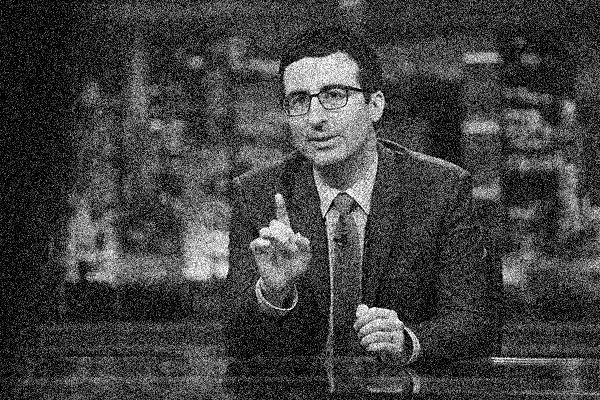On the Persistence of Left Hegelianism
Left Hegelianism has survived healthily into the present because the maintenance of the status quo demands a forum for deflecting oppositional forces.

Contemporary society has produced a seemingly infinite variety of bad objects that are worrisome in their flatness: objects that are bizarre without being exotic (homeopathy, for instance), that are wrong without being debatable (anti-vaccination), that are depressing without being redemptive (opioid addiction). The truly negative moment points beyond itself: in a society different from our own, i.e., one that does not militate against dialectical movement, we scrape the bottom on an upward swing. Today these phenomena litter our landscape without really being metabolizable. They have prepared us ahead of time for existing in utter ruin.
A surprisingly persistent response to problems of this nature is the mobilization of “awareness.” Late-night political comedy shows specialize in producing this salve, and none more than John Oliver’s Last Week Tonight. Each week Oliver performs an in-depth examination of a particular topic of national or global concern, peppering his presentation with throwaway jokes but mostly staying quite focused on laying out very precisely the true insanity of the modern world. It’s insulting, of course, that woke leftist television personalities cannot imagine the American public stomaching political critique except when coated well with humor, but the even more questionable assumption of Last Week Tonight is that adequately delimiting the problem is a way of solving it. If only we really knew, the thought goes, we would go about changing it. The political documentary industry is built on this basic assumption.
Long ago Marx unveiled the falsity of this belief in his critique of Ludwig Feuerbach. In The Essence of Christianity, Feuerbach argues that religion is our earliest form of self-knowledge, in that those characteristics that we worship in God (justice, mercy, love) are really perfectible human capacities. In Feuerbach’s words, “in its consciousness of infinity, the conscious being is conscious of the infinity of its own being” (one can already hear the young Marx here). Religion itself, then, is strictly false, but it contains an inner truth that can be realized in the development of the human capacities that we wrongly attribute to God.
Marx broke with Feuerbach, and more generally with “Left Hegelianism”—the radical mobilization of Hegelian philosophy toward the critique of existing social structures, most commonly associated with Feuerbach but also carried out by other objects of Marx’s criticism, including Bruno Bauer and Max Stirner—on the question not of the truth of this basic claim but of how its truth content was to be actualized. Feuerbach thought the act lay in the revelation: once proclaimed, the truth would slowly wash over us in a wave of obviousness. For Marx, by contrast, Feuerbach had merely elucidated an illusion endemic to a social structure that demands illusions. We cannot dispel the illusions through demystification but only through the kind of revolution that would obviate the need for demystification.
It’s a pretty simple claim. Every doctor or mechanic knows that you have to treat causes, not symptoms. Sure, consciousness is debased, but that debasement is merely a symptom of underlying structural causes and cannot be argued away in itself. The desire to do so is, in fact, typically bourgeois, evidencing a need for clarity in thought that does not endanger existing conditions.
There’s no doubt that a character like John Oliver is carrying out his mission in earnest: he is pained by the phenomena he investigates and genuinely shocked that under every rock in the American landscape lies something so horrifying as to incite wonder as to whether or not the human species ought to continue on. At a certain point though, one has to become bored, which is not to say that one becomes resigned, merely that one begins to expect that our society is so thoroughly failing and banalized as to produce a virtual cornucopia of particular miseries. We don’t need to watch Cowspiracy or the latest Michael Moore film because we already know what they are going to say—that our society is disastrous in way X—and because they are ultimately going to fail to link X to the true disaster of our society.
Which leads one to wonder: why the persistence of this impotent Left Hegelianism? There is, of course, an industry to consider, and a particularly self-righteous one at that. As long as there is a market for Feuerbachian insights, a target audience of people who want to be “in the know,” “woke” in the abhorrent new vernacular, the latest new “shocking developments” will continue on “developing.” But there is a larger issue at work here: Left Hegelianism is not merely a convenient distraction. It is of supreme danger to left politics, and thus a staple of contemporary society, in that it siphons away the energy that could be expended on real political action. “I am aware, and in being aware, have done my part.”
Left Hegelianism has survived healthily into the present, then, because the maintenance of the status quo demands a forum for “deflecting oppositional forces, groups, thinkers, from trying to struggle towards defining what would be an adequate path.” John Oliver is, for this reason, much more of an impediment to the left than is someone like Sean Hannity. Capitalism has insured that our enemies are kept close.
Jon Stewart used to rely upon a particular gimmick that gave the lie to The Daily Show: he would play an outrageous clip, a gem that one only uncovers by paying multiple staff members to watch C-SPAN all day, and then just stare at his audience, sometimes with a bemused smirk but most of the time with little affectation. The message seemed to be that no argument need be made, that the point is so obvious that it needn’t receive articulation in words. He should have found the prejudgment of his clips by his audience to be disconcerting, but there’s an element of truth here: the offensiveness and absurdity of daily life in contemporary capitalist society does not really need elaborate and detailed explication. An extensive cataloguing of the horrors, in fact, serves to detract from the clear-thinking work of felling the structures that generate those horrors.
Let us, then, be in the know in knowing precisely what it is to be in the know, and thereby push our “‘canniness’ so far that it breaks through its bond to the immediate world of action and transforms itself into real thinking.”
■
Aurora Borealis ate her own parents and has nothing to show for it but a vivid fantasy life.



